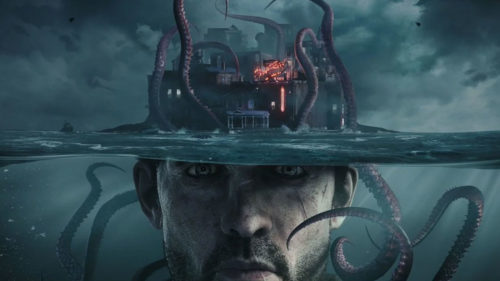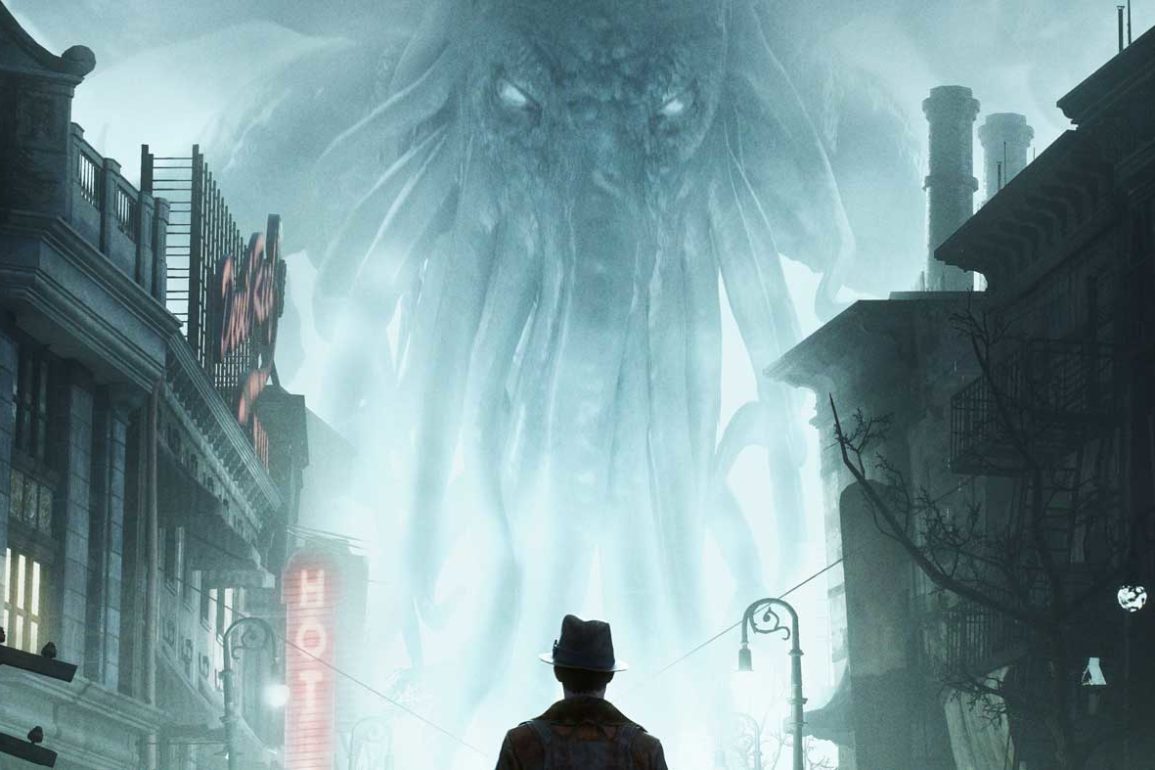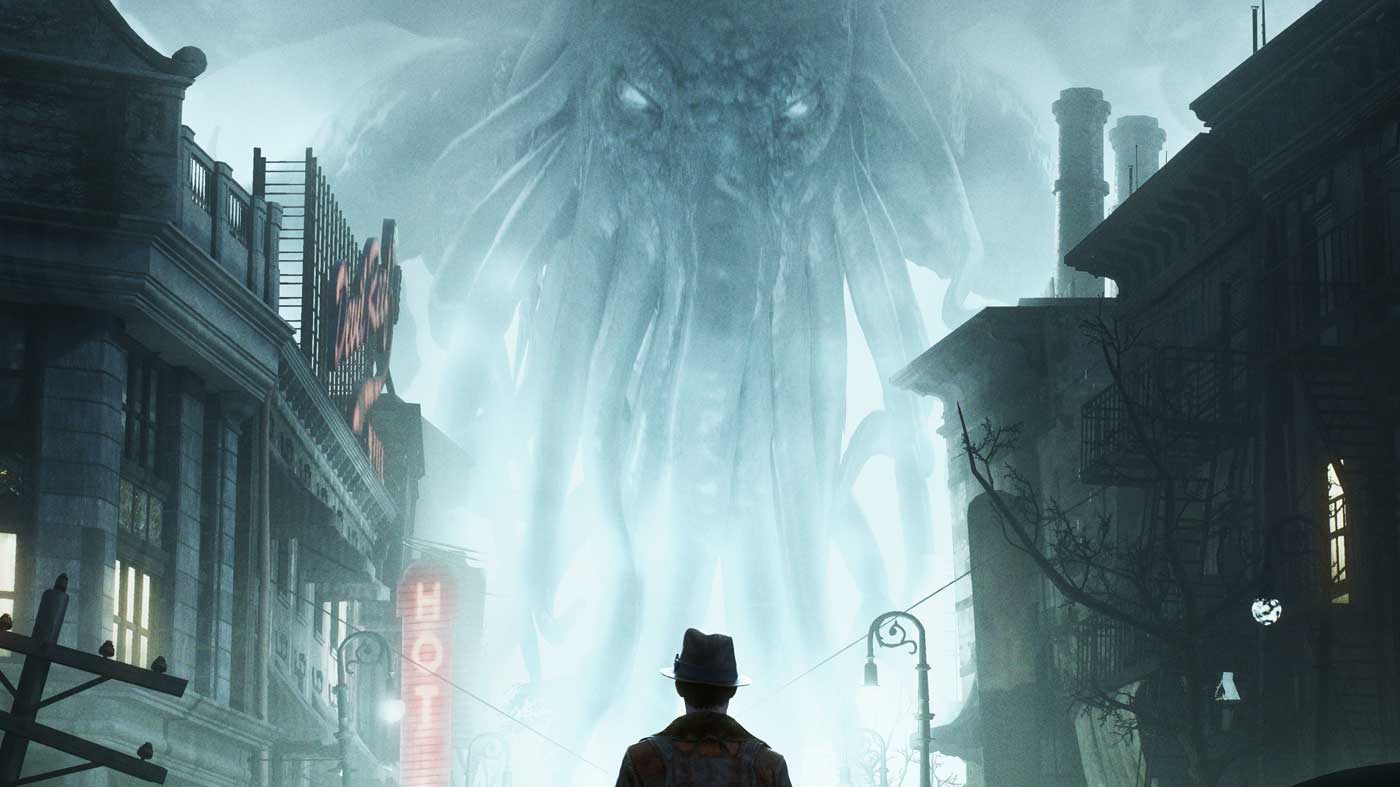
I had no idea what to expect from The Sinking City, but I am happy with what I got. Having played through Call of Cthulhu last year, I was wary that yet another Lovecraft inspired game would maybe feel a bit grating or a retread of material that I’m all too familiar with. Thankfully, The Sinking City follows the stories that H.P. Lovecraft told, but in a way that feels new and fresh.
You play as Charles Reed, a war veteran (and Navy diner too, conveniently) who has since become a private investigator for whoever is willing to pay. Troubled by his own nightmarish visions, Reed is drawn to the fictional city of Oakmont in Massachusetts to investigate a recent bout of hysteria amongst its residents. The more peculiar fact? The town has recently flooded, and most of it has submerged underwater, bringing waves of oddities and creatures amongst the shore.
As you may have noticed from the imagery, The Sinking City takes massive inspiration from the works of H.P. Lovecraft including but obviously not limited to The Call of Cthulhu, The Last Test, and The Shadow over Innsmouth. While I appreciate that so many games dip into the bizarre world that Lovecraft created with Cthulhu, it’s also refreshing to see The Sinking City not follow any story religiously. Such creative freedom is presumably why the game remains intriguing from beginning to end too. Sure, it does come in hot and heavy with the bizarre visions and doesn’t really build up to things as a traditional Cthulhu story would, but it manages to hold your attention for the duration of its reasonable runtime.
Reed himself is a detective, and that’s what you’ll be doing for much of your time with The Sinking City. Developed by the Ukrainian studio Frogwares, who’ve been making Sherlock Holmes games for seventeen years, The Sinking City shares a lot of its DNA with the British super sleuth. This is a detective game first and foremost, and through your adventure in Oakmont, you’ll explore, interview, and cross-reference your evidence to come to conclusions and solve the cases you’re assigned throughout the story. It’s a simple gameplay loop, admittedly, but The Sinking City does a few things differently to the games that came before it.
When you begin The Sinking City, you’ll have a few options that’ll change how you’ll play the game. You can adjust the combat difficulty (which I’ll touch upon a bit later), and you can adjust other aspects of the game. The latter option changes just how straight the game is with you – seasoned investigators can turn off absolutely all hints, while less confident players can turn on icons that give clues as to what Reed can do with specific evidence. Despite this varying degree of handholding, The Sinking City still wants you to do most of the heavy lifting as there’s literally no waypoints to guide you to where you need to go next.
This system both aids immersion but also makes you feel like a real detective, though ironically, you’ll find street names shoehorned into evidence, notes and memos which can sometimes take you out of the moment. Still, Reed can use the information he gleans from evidence and interviewees to better focus his exploration of Oakmont, which is split into seven large districts. While Frogwares has dabbled in open world design with the Sherlock Holmes games prior, The Sinking City commits to this idea full-bore with one of the biggest worlds the developer has ever crafted.
But I’m not entirely convinced it helps the game as much as it should. Quite bluntly, the map is a little bit too big with some cases forcing you to jump from one end to the other. There is fast travel, but not only is this immersion breaking but the load times can be lengthy, so it’s not that fast. Similarly, while there’s something oddly charming about driving a boat across a literal Sunken City, the map is so large that Frogwares clearly had to start repeating houses every now and then. I understand asset reuse and why it’s done in games, but it’s done so much here that I had a hard time not noticing it especially when you walk into a house and it looks the same as another.
Thankfully while the open world didn’t grab me completely, the rest of the game did. Investigating, on the whole, feels varied and dynamic and you’ve got to think about what you’re doing. If you need to look up information on something, you can take the info you do have and use it to cross-check a reference in one of the game’s many archives. Looking for a criminal? Try the police station. Looking for an everyday citizen? The public records in the town hall will do. These minor elements all dovetail nicely with the case conclusions, which usually results in one or two potential outcomes, but disappointingly doesn’t really feed into the final ending you’ll achieve.
When you’re not investigating, odds are you’ll be fighting off the wylebeasts that pop up from time to time. The fact there’s even combat in a game like The Sinking City is surprising, but what’s offered here is rudimentary at best. Progressing through the story unlocks more weapons that made things a little less tedious, but guns in general lack that punch to them and enemies barely react to your shots. There’s a nice variety of enemies including some great little boss encounters, but the combat does get in the way of the game especially in the side quests where combat is used as filler.
There are other aspects you’ll have to manage to be successful too, though thankfully such systems don’t ever cross that dreaded line into needless micromanagement. There’s crafting, which is where you’ll get most of your ammo from, though it feels ultimately pointless. Reed also has a sanity meter in addition to his health, which drains in the face of particularly harrowing visions or evidence he might have to collect. Low sanity means a distorted viewpoint, more enemies to attack you and other weird flashes on your screen. Unfortunately, while it’s a great idea and an essential concept to the Lovecraft experience, its implementation feels facile.
From a presentation standpoint, The Sinking City nails so much despite its ambition and technical issues, which is a great achievement. The team has done such a superb job in capturing an authentic and atmospheric world that’s trying it’s best to recover from a horrific disaster in flood. Character models and animations all look realistic and believable, given the game’s budget. Technical issues keep things from being perfect though – expect to wait more than ten seconds when moving to an indoor location, or entire structures to pop up in the middle of your field of view just as you walk into them. Perhaps these issues will be fixed with a patch, but for now, they’re more than noticeable.
Further adding to the atmosphere, the voice work for the characters is also great, bringing life to the more colourful citizens of Oakmont. Whoever is voicing Charles Reed himself does a great job too – bringing this kind of “seen it all and over it all” gravitas to the role. The score is similarly fantastic, evoking a dreamy almost Lynchian vibe to the depressing streets of Oakmont and further adding to the melancholy of the whole situation the city finds itself in. The atmosphere is thick here, and rightly so.










